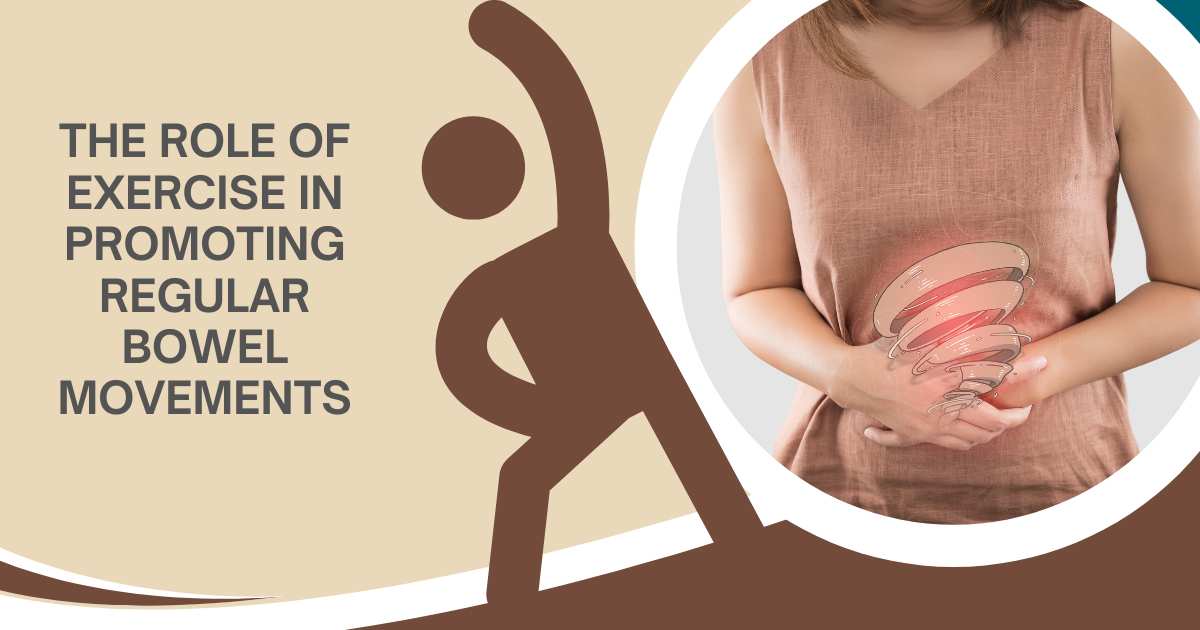The Role of Exercise in Promoting Regular Bowel Movements
Regular bowel movements are essential for digestive health, but numerous variables can affect their frequency and consistency. An often ignored component is the role of exercise. In this blog, we look at how physical activity can help promote regular bowel motions and general digestive health.
Understanding Bowel Movements
Bowel motions, or feces, are the body’s method of removing waste from the digestive tract. Bowel movement frequency and consistency can vary greatly between individuals, depending on factors such as food, hydration, physical activity and even the nature of the microbial gut flora.
The Connection Between Exercise and Bowel Movements
- Stimulating Intestinal Contractions
- Exercise promotes peristalsis, which helps transport food and waste through the digestive tract effectively.
- Reducing Constipation Risk
- Regular physical activity helps to avoid constipation by keeping the digestive system working and minimising the likelihood of dry, difficult-to-pass stools.
Types of Exercise That Support Bowel Health
- Cardiovascular Exercise
- Activities including walking, jogging, cycling, and swimming boost heart rate and circulation, leading to increased bowel movements.
- Strength Training
- Strength training exercises, such as weightlifting or utilising resistance bands, might indirectly benefit gut health by improving general physical fitness and metabolism.
Timing Matters: When to Exercise for Optimal Bowel Function
- Morning Routine
- Exercising in the morning, especially after waking up, helps improve bowel motions and build a consistent habit.
- Pre-Meal Movement
- Some people experience greater gastrointestinal motility after exercise, therefore exercising before meals can be beneficial.
Hydration and Exercise: A Dynamic Duo for Digestive Health
- Water Intake
- Maintaining proper bowel function requires adequate water intake. Drinking water before, during, and after exercise can help with digestion and prevent dehydration-induced constipation.
- Electrolyte Balance
- Replacing electrolytes lost through perspiration during exercise is critical for maintaining fluid balance and promoting good bowel function.
Incorporating Exercise into Your Routine
- Start Slowly
- If you’re new to exercise, start with low-impact activities and gradually increase intensity and duration as your fitness improves.
- Find Activities You Enjoy
- Whether it’s walking, dancing, yoga, or gardening, choose activities that you enjoy and can maintain over time.
Consulting with Healthcare Professionals
- Individualized Recommendations
- Work with your doctor or fitness professional to create an activity plan tailored to your specific needs and health goals.
- Addressing Specific Conditions
- People with specific medical issues or digestive difficulties may need specialized exercise guidelines. Seek advice from doctors who knows your medical history.
Exercise is not only good for your heart and weight, but it also helps promote regular bowel motions and general digestive health. By including regular physical activity into your routine, staying hydrated, and making informed decisions about the types and timing of exercise, you can help maintain normal bowel function and a healthier digestive tract.

